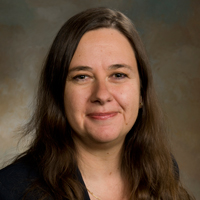Consortium led by Texas A&M University at Galveston awarded $7.25 million to support research on the effects of the Deepwater Horizon oil spill
Tweet A research consortium led by Dr. Antonietta Quigg, Professor of Marine Biology and Associate Vice President for Research and Graduate Studies at Texas A&M’s Galveston campus, was awarded $7.25 million by the Gulf of Mexico Research Initiative (GoMRI) http://gulfresearchinitiative.org/ to conduct scientific studies of the impacts of oil on the Gulf of Mexico ecosystem and public health. This research will study the effects of the April 2010 Macondo well blowout, also known as the Deepwater Horizon oil spill and will focus on improving our fundamental understanding of the implications of such events and on developing improved spill mitigation, oil and gas detection, characterization and remediation technologies. It is part of a $140 million grant funded by British Petroleum to 12 research consortia to support research to be carried out from 2015 through 2017.
A research consortium led by Dr. Antonietta Quigg, Professor of Marine Biology and Associate Vice President for Research and Graduate Studies at Texas A&M’s Galveston campus, was awarded $7.25 million by the Gulf of Mexico Research Initiative (GoMRI) http://gulfresearchinitiative.org/ to conduct scientific studies of the impacts of oil on the Gulf of Mexico ecosystem and public health. This research will study the effects of the April 2010 Macondo well blowout, also known as the Deepwater Horizon oil spill and will focus on improving our fundamental understanding of the implications of such events and on developing improved spill mitigation, oil and gas detection, characterization and remediation technologies. It is part of a $140 million grant funded by British Petroleum to 12 research consortia to support research to be carried out from 2015 through 2017.
“It was clear that research on public health is needed,” said Dr. Rita Colwell, Chairman of the GoMRI Research Board. “I’m pleased that in this round of awards there are funds to study public health issues in the Gulf of Mexico region associated with the oil spill. We are also funding research focused on increasing our knowledge of the biology of the Gulf and the interaction of oil with the ecosystem.”
John Sharp, Chancellor of The Texas A&M University System, said a grant of this magnitude showcases the excellence of the research program at Texas A&M University at Galveston. “We’re honored to receive this grant and to have the opportunity for our Galveston campus to be part of this important group of studies,” Sharp said. “We have made a significant commitment to research initiatives across the Texas A&M System and a grant such as this helps confirm the importance of that commitment.”
Dr. Antonietta Quigg’s project entitled “Role of microbial exopolymers in aggregation and degradation of oil and dispersants”, will focus on developing a better understanding the molecular-level chemistry of sparingly-soluble substances in complex systems and the associated microbial communities.
Dr. Quigg’s consortium comprises 5 other collaborating institutions and Texas Sea Grant. Texas A&M University, including researchers from Marine Biology (Quigg), Marine Science (Dr. P. Santschi) and the Geochemical and Environmental Research Group (Tony Knapp and Dr. Terry Wade), will be responsible for the overall project management and lead the laboratory experiments and field collections. Collaborating institutions include the University of California - Merced, the University of Southern California, Mount Allison University (Canada), the University of California Santa Barbara, and Old Dominion University. Texas Sea Grant’s Josh Gunn will provide support for outreach activities through its well-established statewide and national networks.
“This is extremely important for those of us whose life, work and recreation are connected to the Gulf of Mexico” said RADM Robert Smith, chief executive officer at Texas A&M University at Galveston. “This also demonstrates the high level of research Texas A&M Galveston’s scientists achieve in understanding the dynamics of the Gulf of Mexico ecosystem.”
Texas A&M University at Galveston is the maritime and marine campus of Texas A&M University at College Station. It is a special purpose institution offering academic programs, research and service in marine and maritime studies. The institution is home to the Texas A&M Maritime Academy the only maritime academy located on the Gulf Coast. Texas A&M Galveston’s Aggies like their College Station counter-parts, receive the Aggie Ring and a Texas A&M University diploma.
###